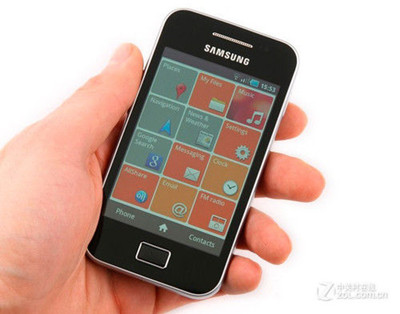You probably know at least half a dozen people walking around with cracked smartphone screens.
你或许注意到了身边至少一半人的智能手机屏幕已经碎裂。
These devices may be everywhere, but they're not built to last.
手机的确无处不在,但它们并非能够永远使用。
Smartphone companies figure you'll just buy a new one.
智能手机公司认为你很快就会喜新厌旧。
Still, Apple is at least thinking about ways to make their gadgets more resilient.
不过至少苹果公司还在想办法使自己的产品更耐久。

The U.S. Patent and Trademark Office recently awarded the company a patent for an electronic device that could determine when it is in free fall—and then prepare itself for impact.
苹果公司最近获得了美国商标专利局颁发的一项专利,他们研发的一款电子设备在掉落时会自行判断并做好冲击准备。
The future device would quickly rearrange or even eject internal components to change its center of mass.
这款未来电子设备将能够在最短时间内进行重新排列或弹出内部组件以改变重心。
It might even alter its trajectory with an airfoil or mini compressed-gas thruster.
它甚至可以通过翼面或小型压缩气体推进器改变自身轨道。
Either way, the gadget would land in a way that causes the least damage.
不管怎样,这种设备最终会以损害降到最低的方式掉落。
Such a system is a lot more complicated than simply making a more durable screen, which is high on a lot of customers' wish lists.
这样的系统比单纯地制作很多客户都看好耐用屏要复杂得多。
Apple had been toying with tougher screens that use what's called sapphire glass for the iPhone 6,but its supplier apparently couldn't correctly produce the necessary synthetic sapphire.
苹果公司一直在尝试使用硬屏,甚至用蓝宝石玻璃作为自家6代手机的屏幕,但供应商显然无法生产合适的合成蓝宝石。
So iPhone users now get the industry-standard Gorilla Glass touch screen—and a glimpse at a future potentially populated with smartphones that even fall intelligently.
因此苹果手机用户现在使用的是行业标准的钢化玻璃触摸屏,并且一直期待未来的手机就连掉落也能摔出智能范儿。













